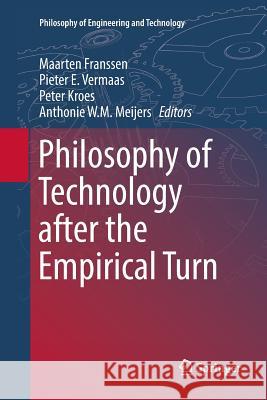Philosophy of Technology After the Empirical Turn » książka
topmenu
Philosophy of Technology After the Empirical Turn
ISBN-13: 9783319815824 / Angielski / Miękka / 2018 / 325 str.
Kategorie BISAC:
Wydawca:
Springer
Seria wydawnicza:
Język:
Angielski
ISBN-13:
9783319815824
Rok wydania:
2018
Wydanie:
Softcover Repri
Ilość stron:
325
Waga:
0.46 kg
Wymiary:
23.39 x 15.6 x 1.75
Oprawa:
Miękka
Wolumenów:
01
Dodatkowe informacje:
Wydanie ilustrowane











